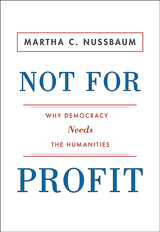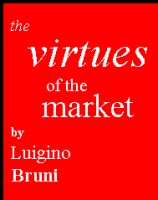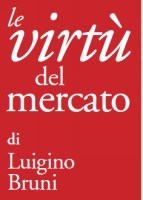stdClass Object
(
[id] => 20215
[title] => “Peace be with you.” This is how Pope Leo explains the “irrationality” of war
[alias] => peace-be-with-you-this-is-how-pope-leo-explains-the-irrationality-of-war
[introtext] => “Interests” and “revenge” are the two key words in the Pope's teaching on peace: interests remain interests even when they are legitimate and, as such, are not an absolute value, while peace begins with revenge interrupted in view of a greater
by Luigino Bruni
published in Vita on 01/07/2025
“Peace be with you” were Pope Leo's first words in his greeting after his election. This greeting, together with his name, chosen for Rerum Novarum, was his first encyclical letter (the entire social doctrine of the Church tends towards peace); like his name, Francis, it was Pope Bergoglio's first letter. In every “speech,” the first and last words are always the most decisive. Then, from that first evening in Rome, Pope Leo never stopped beginning his greetings and public speeches with “peace be with you.”
[fulltext] =>
An evangelical greeting – “Now, while they were talking about these things, Jesus himself appeared in their midst and said, ‘Peace be with you!’” (Lk 24:36) – and also the cornerstone of Francis' charisma. As his first biographer, Thomas of Celano, recounts, "in every sermon, before communicating the word of God to the people, he wished them peace, saying: ‘May the Lord give you peace!’. He always proclaimed this peace sincerely to men and women, to all those he met or who came to him. In this way, with the grace of the Lord, he often succeeded in persuading the enemies of peace and of their own salvation to become themselves children of peace and desirous of eternal salvation." (Vita prima, chap. 10, § 359).
How can we continue to betray the desires for peace of peoples with false propaganda about rearmament?
Pope Leo XIV
It is therefore very important that in his very first public statements, Pope Leo is making peace his dominant theme, as he also did in his address to the participants in the Assembly of the Reunion for Works of Aid to the Eastern Churches (Roaco) on June 26. In that strong and courageous speech, the pope said, among other things: "It is truly sad to see today in so many contexts the imposition of the law of the strongest, by which one's own interests are legitimized. ... This is unworthy of man, it is shameful for humanity and for those responsible for nations. How can we believe, after centuries of history, that acts of war can bring peace and not turn against those who have carried them out? ... How can we continue to betray the desire for peace of peoples with false propaganda about rearmament, in the vain illusion that supremacy will solve problems instead of fueling hatred and revenge?"
Here the Pope identifies two “reasons” (or rather “irrationalities”) for wars, all wars, including our own. The first is interests. Not all interests are illegitimate. Behind wars there are also legitimate interests of defense, territorial integrity, and justice. We know this. But they remain interests, and as such they are not an absolute value. They are important elements in the lives of individuals and peoples, but they are not absolute and non-negotiable. There is something more important and profound than interests. There is life, the life of people, including that of soldiers (sometimes it seems that the death of soldiers is normal, while only the death of civilians is wrong). No territory, even if it were as large as the whole earth, is worth the life of a human being. In Europe, we have sacrificed the lives of tens of millions of men and women to defend kilometers of borders, to defend the frontiers of the homeland, treating people as instruments of very little value to safeguard the land. Would the history of Italy really have changed for the worse if we had lost the war with Austria? We do not know, but what is almost certain is that we would have been spared fascism with its delusions of rebuilding an empire. In Europe, we have learned, at a very high price, the terrible lesson of the illusion of borders, but today, instead of treasuring it and teaching it to younger nations, we are becoming allies of endless reactions and revenge.
Revengeis, in fact, the other key word in that discourse. Revenge has always been the great fuel of conflict, from private disputes to wars. The Bible knows this very well, which makes God place a mark on Cain so that no one will kill the fratricide and thus avoid revenge and its “mimetic” repetition (René Girard). History has taught us that wars end when one of the parties, often unilaterally, decides to put an end to the potentially endless chain of revenge. Peace begins with revenge interrupted in the interest of a greater good, when the small “good” of avenging an injustice gives way to the building of a great justice, peace.
Thank you, Pope Leo. We support you in your teaching of peace. It would be prophetic and very beautiful if, in imitation of the Pope, in these terrible times of war, all Catholic conferences and Masses began with “peace be with you” and ended with the same words. Peace is also generated by words, by pronouncing different and beautiful words together. Like the word “peace.”
Photo Credits : ©Vatican Media
[checked_out] => 0
[checked_out_time] => 0000-00-00 00:00:00
[catid] => 946
[created] => 2025-07-04 05:32:50
[created_by] => 64
[created_by_alias] => Luigino Bruni
[state] => 1
[modified] => 2025-07-04 15:43:25
[modified_by] => 64
[modified_by_name] => Antonella Ferrucci
[publish_up] => 2025-07-04 05:32:50
[publish_down] => 0000-00-00 00:00:00
[images] => {"image_intro":"","float_intro":"","image_intro_alt":"","image_intro_caption":"","image_fulltext":"","float_fulltext":"","image_fulltext_alt":"","image_fulltext_caption":""}
[urls] => {"urla":false,"urlatext":"","targeta":"","urlb":false,"urlbtext":"","targetb":"","urlc":false,"urlctext":"","targetc":""}
[attribs] => {"article_layout":"","show_title":"","link_titles":"","show_tags":"","show_intro":"","info_block_position":"","info_block_show_title":"","show_category":"","link_category":"","show_parent_category":"","link_parent_category":"","show_associations":"","show_author":"","link_author":"","show_create_date":"","show_modify_date":"","show_publish_date":"","show_item_navigation":"","show_icons":"","show_print_icon":"","show_email_icon":"","show_vote":"","show_hits":"","show_noauth":"","urls_position":"","alternative_readmore":"","article_page_title":"","show_publishing_options":"","show_article_options":"","show_urls_images_backend":"","show_urls_images_frontend":"","helix_ultimate_image":"images\/2025\/07\/03\/Papa_Leone_XIV_ufficiale_ant.jpg","helix_ultimate_image_alt_txt":"","spfeatured_image":"images\/2025\/07\/03\/Papa_Leone_XIV_ufficiale_ant.jpg","helix_ultimate_article_format":"standard","helix_ultimate_audio":"","helix_ultimate_gallery":"","helix_ultimate_video":"","video":""}
[metadata] => {"robots":"","author":"","rights":"","xreference":""}
[metakey] =>
[metadesc] =>
[access] => 1
[hits] => 684
[xreference] =>
[featured] => 1
[language] => en-GB
[on_img_default] => 0
[readmore] => 4890
[ordering] => 0
[category_title] => En - Vita
[category_route] => economia-civile/it-editoriali-vari/it-vita
[category_access] => 1
[category_alias] => en-vita
[published] => 1
[parents_published] => 1
[lft] => 85
[author] => Luigino Bruni
[author_email] => ferrucci.anto@gmail.com
[parent_title] => IT - Editoriali vari
[parent_id] => 893
[parent_route] => economia-civile/it-editoriali-vari
[parent_alias] => it-editoriali-vari
[rating] => 0
[rating_count] => 0
[alternative_readmore] =>
[layout] =>
[params] => Joomla\Registry\Registry Object
(
[data:protected] => stdClass Object
(
[article_layout] => _:default
[show_title] => 1
[link_titles] => 1
[show_intro] => 1
[info_block_position] => 0
[info_block_show_title] => 1
[show_category] => 1
[link_category] => 1
[show_parent_category] => 1
[link_parent_category] => 1
[show_associations] => 0
[flags] => 1
[show_author] => 0
[link_author] => 0
[show_create_date] => 1
[show_modify_date] => 0
[show_publish_date] => 1
[show_item_navigation] => 1
[show_vote] => 0
[show_readmore] => 0
[show_readmore_title] => 0
[readmore_limit] => 100
[show_tags] => 1
[show_icons] => 1
[show_print_icon] => 1
[show_email_icon] => 1
[show_hits] => 0
[record_hits] => 1
[show_noauth] => 0
[urls_position] => 1
[captcha] =>
[show_publishing_options] => 1
[show_article_options] => 1
[save_history] => 1
[history_limit] => 10
[show_urls_images_frontend] => 0
[show_urls_images_backend] => 1
[targeta] => 0
[targetb] => 0
[targetc] => 0
[float_intro] => left
[float_fulltext] => left
[category_layout] => _:blog
[show_category_heading_title_text] => 0
[show_category_title] => 0
[show_description] => 0
[show_description_image] => 0
[maxLevel] => 0
[show_empty_categories] => 0
[show_no_articles] => 1
[show_subcat_desc] => 0
[show_cat_num_articles] => 0
[show_cat_tags] => 1
[show_base_description] => 1
[maxLevelcat] => -1
[show_empty_categories_cat] => 0
[show_subcat_desc_cat] => 0
[show_cat_num_articles_cat] => 0
[num_leading_articles] => 0
[num_intro_articles] => 14
[num_columns] => 2
[num_links] => 0
[multi_column_order] => 1
[show_subcategory_content] => -1
[show_pagination_limit] => 1
[filter_field] => hide
[show_headings] => 1
[list_show_date] => 0
[date_format] =>
[list_show_hits] => 1
[list_show_author] => 1
[list_show_votes] => 0
[list_show_ratings] => 0
[orderby_pri] => none
[orderby_sec] => rdate
[order_date] => published
[show_pagination] => 2
[show_pagination_results] => 1
[show_featured] => show
[show_feed_link] => 1
[feed_summary] => 0
[feed_show_readmore] => 0
[sef_advanced] => 1
[sef_ids] => 1
[custom_fields_enable] => 1
[show_page_heading] => 0
[layout_type] => blog
[menu_text] => 1
[menu_show] => 1
[secure] => 0
[helixultimatemenulayout] => {"width":600,"menualign":"right","megamenu":0,"showtitle":1,"faicon":"","customclass":"","dropdown":"right","badge":"","badge_position":"","badge_bg_color":"","badge_text_color":"","layout":[]}
[helixultimate_enable_page_title] => 1
[helixultimate_page_title_alt] => Economia Civile
[helixultimate_page_subtitle] => Vita
[helixultimate_page_title_heading] => h2
[page_title] => Vita
[page_description] =>
[page_rights] =>
[robots] =>
[access-view] => 1
)
[initialized:protected] => 1
[separator] => .
)
[displayDate] => 2025-07-04 05:32:50
[tags] => Joomla\CMS\Helper\TagsHelper Object
(
[tagsChanged:protected] =>
[replaceTags:protected] =>
[typeAlias] =>
[itemTags] => Array
(
)
)
[slug] => 20215:peace-be-with-you-this-is-how-pope-leo-explains-the-irrationality-of-war
[parent_slug] => 893:it-editoriali-vari
[catslug] => 946:en-vita
[event] => stdClass Object
(
[afterDisplayTitle] =>
[beforeDisplayContent] =>
[afterDisplayContent] =>
)
[text] => “Interests” and “revenge” are the two key words in the Pope's teaching on peace: interests remain interests even when they are legitimate and, as such, are not an absolute value, while peace begins with revenge interrupted in view of a greater
by Luigino Bruni
published in Vita on 01/07/2025
“Peace be with you” were Pope Leo's first words in his greeting after his election. This greeting, together with his name, chosen for Rerum Novarum, was his first encyclical letter (the entire social doctrine of the Church tends towards peace); like his name, Francis, it was Pope Bergoglio's first letter. In every “speech,” the first and last words are always the most decisive. Then, from that first evening in Rome, Pope Leo never stopped beginning his greetings and public speeches with “peace be with you.”
[jcfields] => Array
(
)
[type] => intro
[oddeven] => item-odd
)







 «The humanities and the arts are being cut away, in both primary/secondary and college/university education, in virtually every nation of the world. Seen by policy-makers as useless frills, at a time when nations must cut away all useless things in order to stay competitive in the global market, they are rapidly losing their place in curricula, and also in the minds and hearts of parents and children. Indeed, what we might call the humanistic aspects of science and social science— the imaginative, creative aspect, and the aspect of rigorous critical thought—are also losing ground as nations prefer to pursue short-term profit by the cultivation of the useful and highly applied skills suited to profit-making». I believe that this phrase from the American philosopher
«The humanities and the arts are being cut away, in both primary/secondary and college/university education, in virtually every nation of the world. Seen by policy-makers as useless frills, at a time when nations must cut away all useless things in order to stay competitive in the global market, they are rapidly losing their place in curricula, and also in the minds and hearts of parents and children. Indeed, what we might call the humanistic aspects of science and social science— the imaginative, creative aspect, and the aspect of rigorous critical thought—are also losing ground as nations prefer to pursue short-term profit by the cultivation of the useful and highly applied skills suited to profit-making». I believe that this phrase from the American philosopher  dedicated a lot of work and civil passion towards democracy, showing us, together with
dedicated a lot of work and civil passion towards democracy, showing us, together with  Competition, if well understood, is one of the main virtues of the market. But, even in this case, we have to clear the field of mistaken or partial understandings of competition. Competition is a virtue when it works as that social mechanism which civil economists of the 18th century, like the Romagnosi from Milan or Cattaneo, called civil competition. What does it deal with?
Competition, if well understood, is one of the main virtues of the market. But, even in this case, we have to clear the field of mistaken or partial understandings of competition. Competition is a virtue when it works as that social mechanism which civil economists of the 18th century, like the Romagnosi from Milan or Cattaneo, called civil competition. What does it deal with? Even if it may seem strange, hope is – or at least should be – a market virtue. As is well-known, hope is a virtue, and a particularly a theological virtue alongside faith and charity, as in Western and Christian tradition these virtues are the foundation for the others (courage, temperance, strength, prudence, etc.).
Even if it may seem strange, hope is – or at least should be – a market virtue. As is well-known, hope is a virtue, and a particularly a theological virtue alongside faith and charity, as in Western and Christian tradition these virtues are the foundation for the others (courage, temperance, strength, prudence, etc.).
